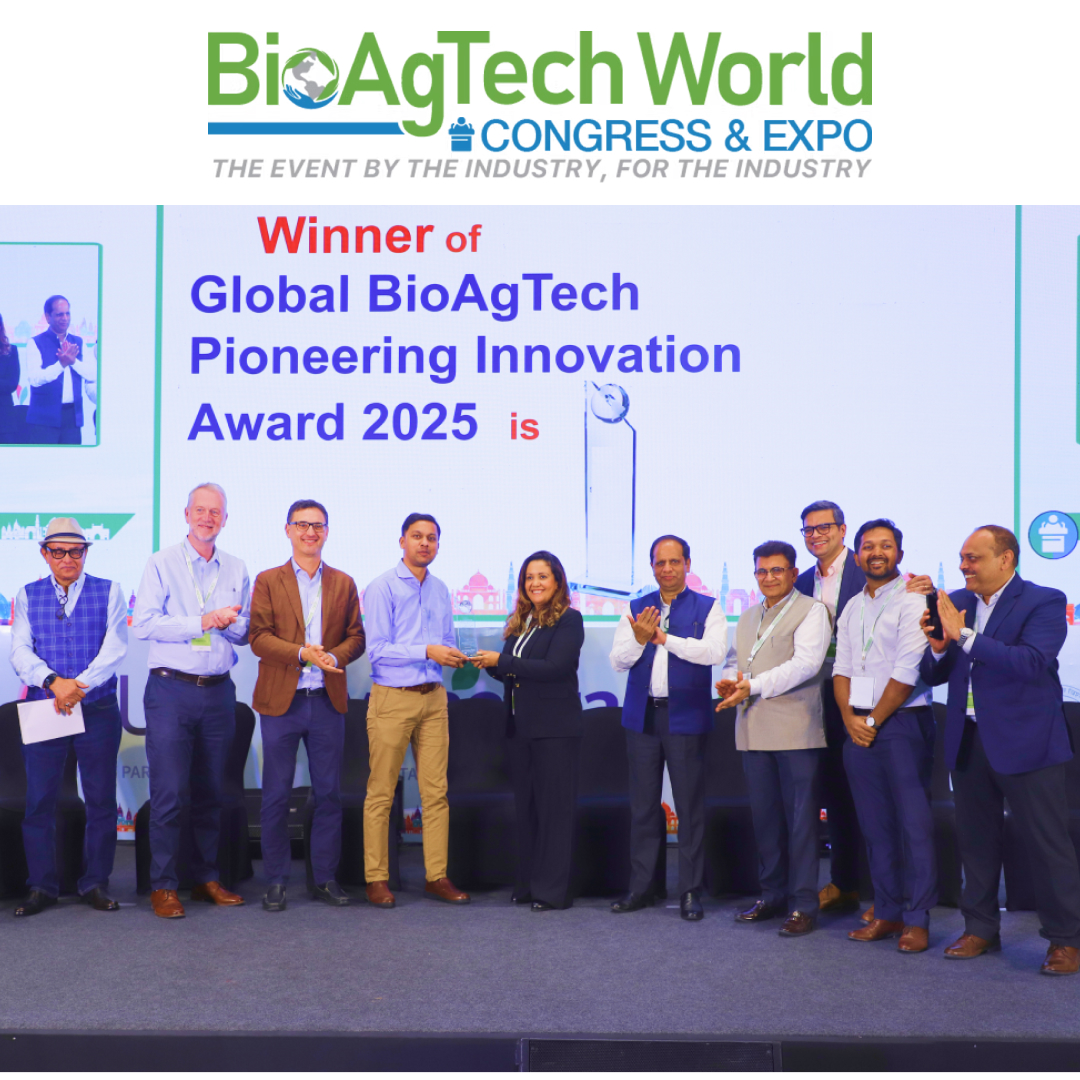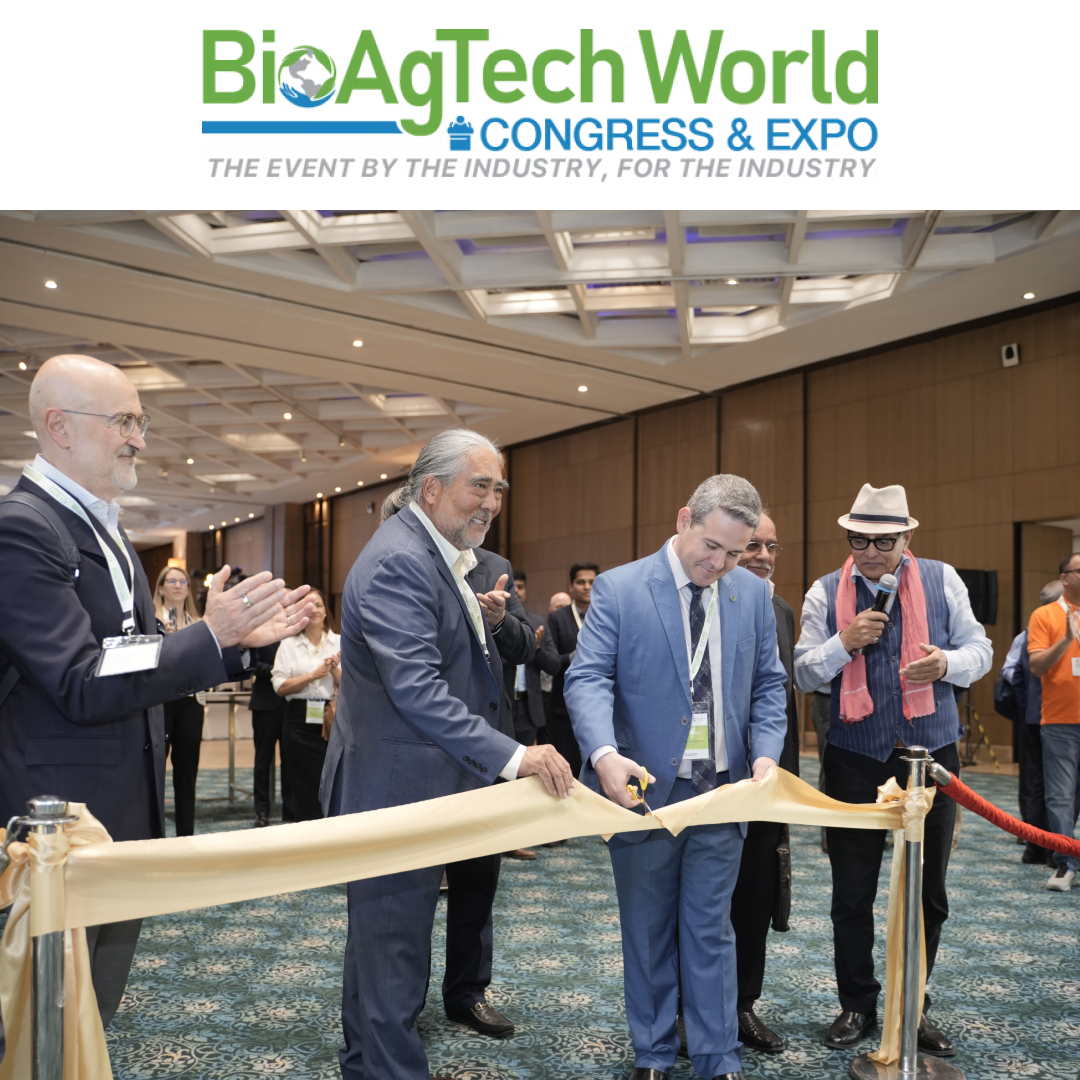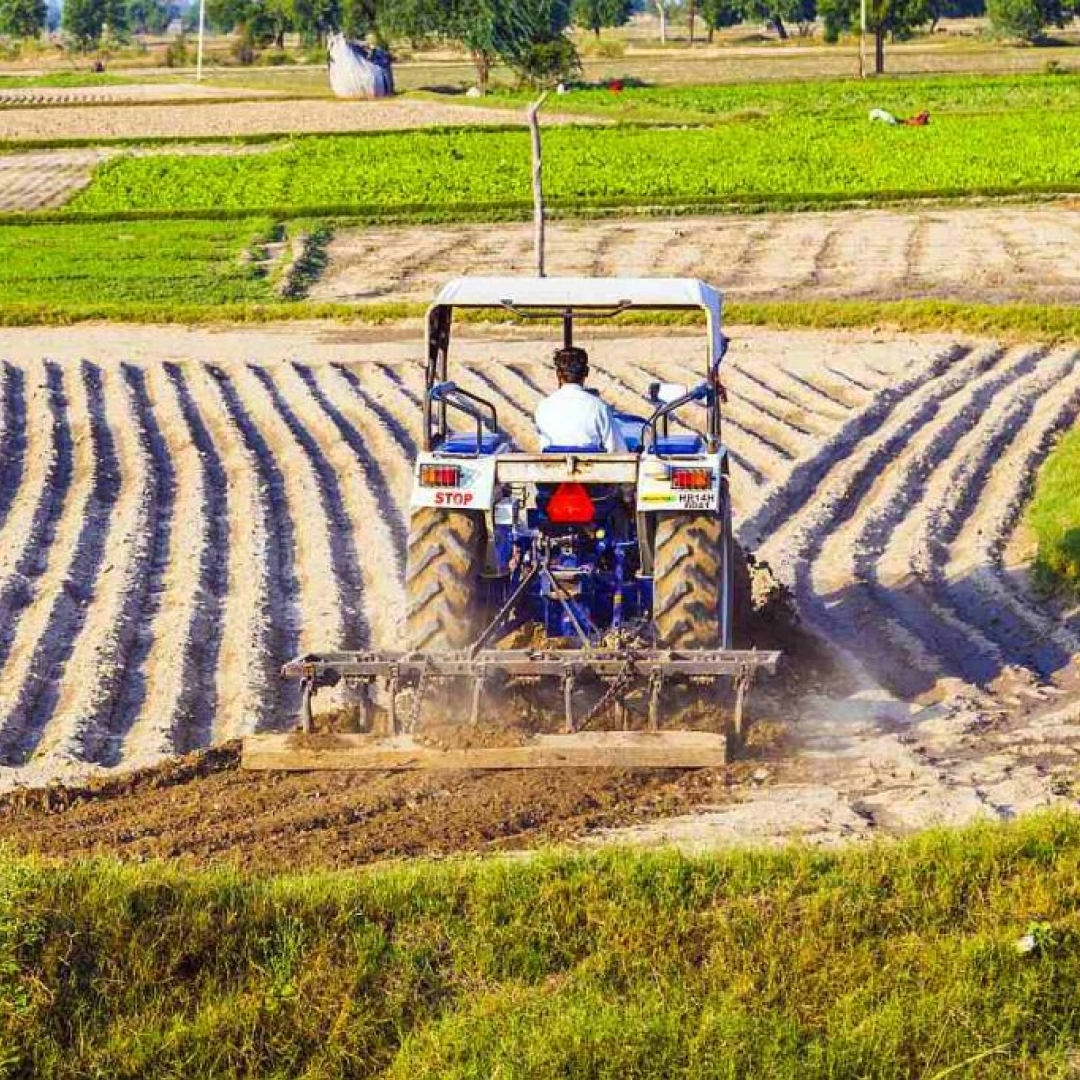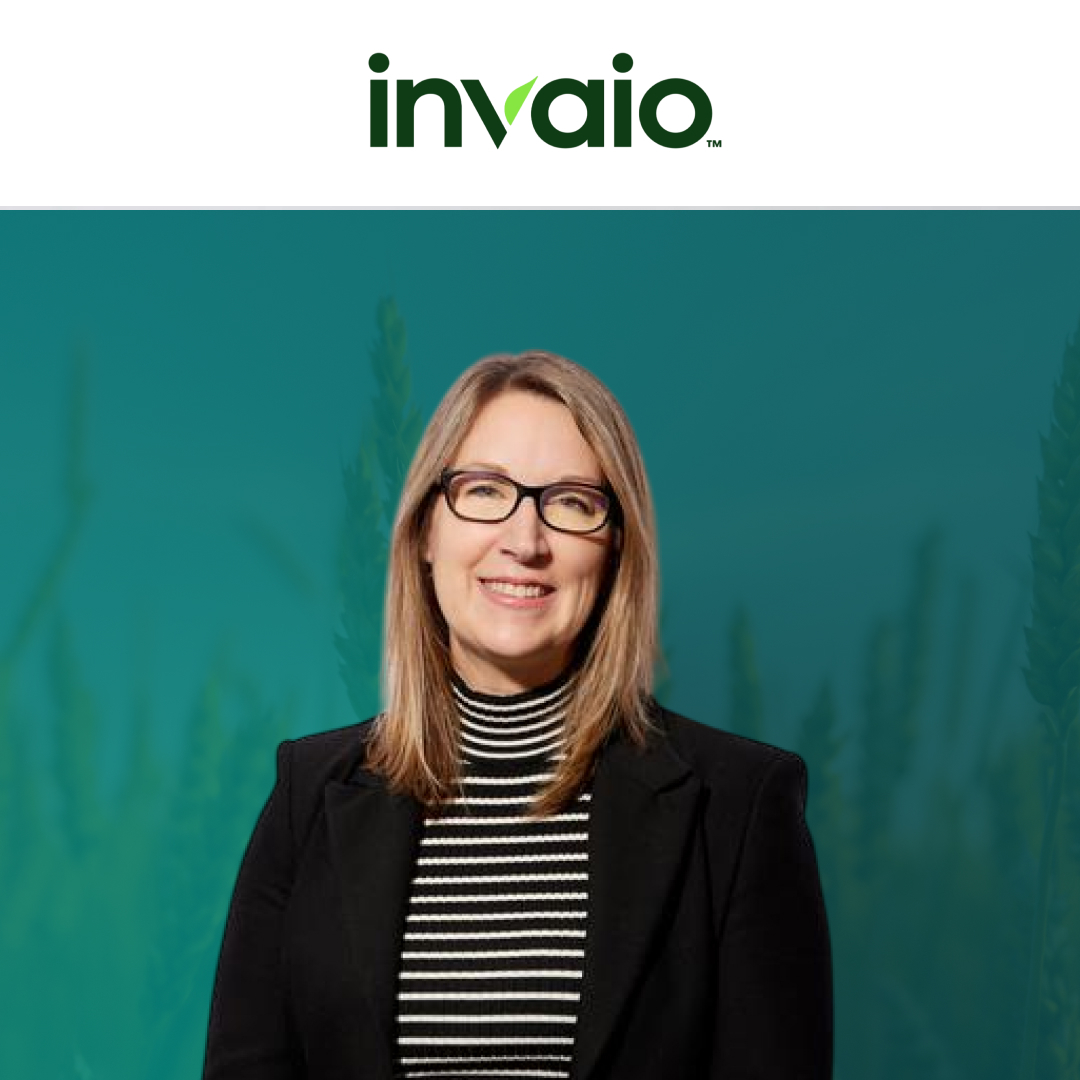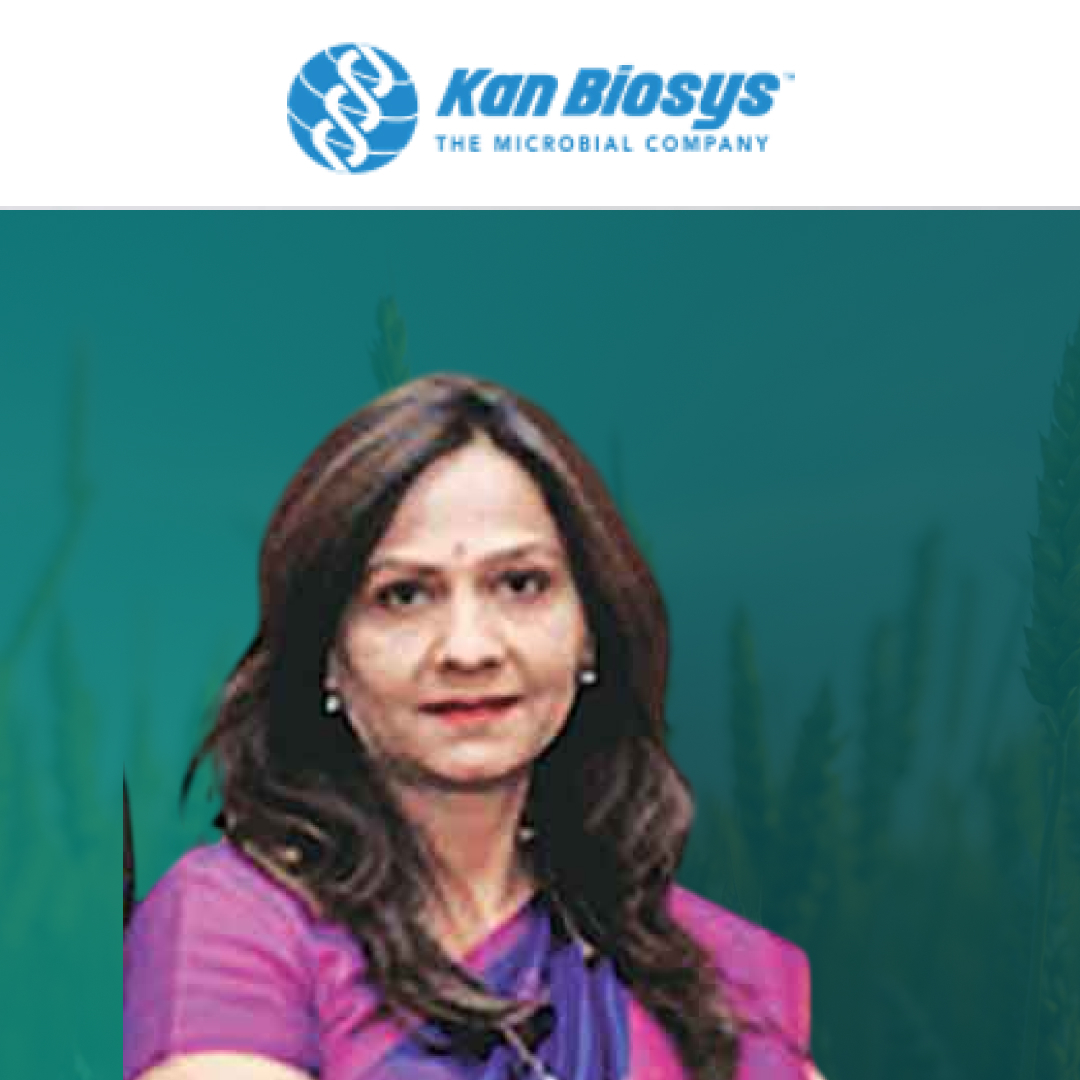Cultivating Success: Spotlight on Dr.Bénédicte Flambard in Agriculture

Dr. Bénédicte Flambard joined FMC in 2019 and has successfully directed FMC’s Plant Health business into new high-growth areas across an extensive platform of biologicals, seed treatment, and micronutrient product solutions. During her tenure, FMC Plant Health has launched several new biological products and strengthened its discovery and development pipelines with promising new biological solutions. She has also led investments in the expansion of FMC’s biological laboratories and greenhouses at the European Innovation Center (EIC). She has been instrumental in the recent acquisition and integration of BioPhero, the leading pheromones research and production company in Denmark
Before joining FMC in 2019, Bénédicte led the Live Biotherapeutics & Nutraceuticals business at Boehringer Ingelheim GmbH in Germany. She has held a variety of senior research and commercial roles at Chr. Hansen A/S in Denmark. Bénédicte earned a Master of Science in microbial ecology and a doctorate in molecular genetics and microbial physiology from the National Institute of Agronomic Research in Paris, a Master’s in business creation and entrepreneurial leadership, from the Technical University of Denmark, and an MBA from the
University of Bath in England.
Q1. Tell us about your career path, and how did you get to where you are today in the bio- agriculture industry?
I have been working with biologicals for more than 25 years in different industries, in different capacities, from food to farming. I started in dairy and functional foods and then moved into human health and nutrition. From there, I shifted to animal health and nutrition, then livestock and the pet industry. I even worked in the pharmaceutical industry. It was during my time at the bioscience company Chr. Hansen A/S, I first started working in bio-agriculture.Bio-agriculture is not that different from the other industries I’ve worked in; the market drivers
of biologicals are similar. For example, biologicals were introduced in the animal health market to address antibiotic resistance in livestock. Today, in agriculture, pests are developing resistance to synthetics, which provides an opportunity for biologicals in pest management programs.
Q2. FMC has become a major player in the bio-agriculture industry in 10 years. How do you intend to continue growing?
The adoption of biologicals is driven by regulatory requirements, pest resistance, and sustainability factors. To be successful, companies must address all three factors simultaneously. Ten years ago, FMC saw a market opportunity and began investing at the right time with a close- to-market biological portfolio. Now, we are bringing all our tools, synthetics, biologicals, and precision agriculture together for growers. To continue to bolster our biological crop protection portfolio, FMC is actively fostering partnerships for product and technology access and pipeline acquisition, as well as go-to-market opportunities. Additionally, we are expanding our biological portfolio through in-house research and development.
FMC’s biological products are known for their attributes such as long shelf life, high stability, and low use rates. Beyond crop performance, these add value to the supply chain which is a critical factor in the biologicals market. We are leaders in several segments with our synthetics,
like market-leading diamides, as well as our novel precision agriculture technologies. Thus, we are in a position to continue providing growers with integrated solutions to benefit their crop management.
Q3. What are some of the biggest challenges that are facing the bio-agriculture industry today? And how will FMC address them?
One of the biggest challenges we are facing in the bio-agriculture industry today is the pace at which some regulatory bodies are approving biological products. For example, Europe is still lagging, and we see the same in other countries. Companies need to demonstrate to regulatory bodies that biological products are clearly the next generation. At FMC, we do this by engaging with authorities and associations and sharing protocols and performance data. The second challenge is to change the perception of biologicals. Many markets are still skeptical
about the performance and legitimacy of biologicals as a solution in crop protection. Initially, many players in the market over-sold products like biostimulants and forgot to educate growers on their use. This resulted in early adopters experiencing a lack of performance. Our focus on customer-centricity is extremely important to changing this perception. The impetus should be to engage with growers, and that is one of FMC’s core strengths. Lastly, the vast number of new technologies including molecules such as peptides or pheromones, produced in completely different ways presents a challenge ‘How do we bring those products to market to add value?’ Therefore, FMC Ventures is the investment arm of FMC that supports startups and early-stage companies developing and applying emerging technologies in
the agriculture industry.
Q4. What is your approach to leadership? And how do you motivate your team?
I summarize my approach to leadership as being authentic. I begin by establishing trust, building relationships, being open, and having constructive dialogue. No subject is banned from being discussed constructively. I like debate, I like group dynamics, and I like teamwork. It’s a very inclusive type of leadership.
Q5. Is any of this different because you are a female leader in bio-agriculture?
No, it’s more about my personality. If you are authentic, you are not afraid to ask questions or to promote dialogue and discussions. That applies whether you are male or female.
Q6. With time more and more women are entering the agriculture industry. What is your advice to the next generation of women?
I’m seeing a shift towards accepting more women, not only in BioAg but in all the industries I’ve worked in. My advice to women is to not be afraid to speak up. Women should pursue their vision and their way of operating. Women’s approach offers a diverse way of thinking and distinct values. Different, but complementary to a man’s approach. Companies must make space for women to speak up. FMC is really progressive in this way. The leadership really walks the talk on gender equity. It’s in our culture and is measured to ensure that it is real. That means you feel confident being a woman at FMC. Here you can be your authentic self.
Q7. Have you felt that being a woman has been a hindrance on your path?
Of course, but I’ve never felt that way at FMC. My previous experience was that you needed to prove yourself much more as a woman. I once was the only woman in a leadership team with 23 men. I had to work harder to get my points across. I spent more energy worrying about how people would react to my argument and less time being true to my natural self and expressing what I stand for. That’s why authenticity is so important.
Cultivating Success: Spotlight on Dr. Piyatida (Tung) Pukclai in Agriculture

Dr. Piyatida (Tung) Pukclai has degrees in Bioresource Science for Manufacturing – Plant Biochemistry with specializations in Plant Pathology and Biological Control. Currently, she is looking after new regulatory policies and guidance development in different Asian countries for Knoell Group. Knoell has been an independent service provider for Regulatory Affairs and Product Registration for over 25 years. She is also active as a speaker at
various international conferences and workshops. Additionally, she leads business development activities for the Asia-Pacific region including client interactions, and project management.
Q1. How has your journey in the bio-agriculture industry been- how did you start your career and what have been the highs and lows in it?
I studied Bioresource Science for Manufacturing at The United Graduate School of Agricultural Sciences, Ehime University, and Kagawa University, (Japan) with specializations in Plant Biochemistry, Plant Pathology, and Biological Control that reduce chemical use in agriculture. During my study, I wondered how plant protection products in the entire world are regulated and what resilient and sustainable approaches would be needed to reduce the impacts of pest management on human health and the environment. I started my career in a regulatory affairs position at Knoell. I handle the registration and look after new regulatory policies and guidance development in different Asia countries. I learned a lot regarding regulatory approaches for crop protection products. Since 2016, I have led the Asia- Pacific regulatory policy team for crop protection, coordinating, conducting the work, and supervising regulatory compliance for conventional and biological control product inputs. Besides this, I have had the fantastic opportunity to handle sales and work with various aspects of the agricultural industry. It is difficult to say what I have enjoyed the most. I am passionate about the bio-agriculture industry, especially when it comes to the development of regulations although changes in regulatory science are slow compared to science developments. I love to discuss this challenging topic with all the stakeholders and give advice or suggestions to support the industry to be compliant with the regulations and win the market.
Q2. What are some of the challenges you have faced as a female leader in BioAg and how have you overcome these challenges?
Women are a growing demographic in agriculture, but still, we can’t deny that women are underrepresented in leadership in nearly every facet of the industry. The image of a man leading and a woman helping is still common in the agriculture industry. I am thankful to the people around me for believing in me and encouraging me to explore new things, learn, and develop skills. At Knoell, we all believe in equality and diversity and I have never faced any gender biases. However, I have worked hard to be here in this leadership role. I focused on my abilities and have always proved my worth through my work and overcame challenges.
Q3. What gives you the confidence to go forward and motivates you to be a women leader in bio-agriculture?
I trust people and likewise I gained the trust of people I discussed or worked with. The BioAg industry is filled with great people who do good work. Males and females may go about things differently or focus on different aspects to support the industry toward the same goal. I am proud to see more and more women participating in this industry. It shows that gender is not a hindrance. It is about putting efforts and skills into the successful completion of tasks. Being accepted into the industry, and receiving several opportunities to share my knowledge and thoughts to drive the industry motivates me to do better every day.
Q4. What are your future goals for Knoell and sustainable agriculture? How do you want to get there?
BioAg is an imperative part of a system approach to sustainable agriculture. It reduces the reliance on conventional pesticides, minimizes the negative impact on the environment, and improves user safety while maintaining the economic viability of crop production. At Knoell, we established the “biocontrol team” where we have a pool of regulatory and scientific experts. They strive to help the industry navigate the maze of biocontrol regulation globally, by addressing any regulatory problems and advising on the most appropriate regulatory approaches for biocontrol products. Our goal is to provide benefits from our ‘glocal’ concept (think globally – act locally). To do that, we combine global know-how with local experience and intercultural knowledge to ensure that all the different regulatory requirements are considered, right from the beginning. The regulatory issue is of utmost relevance to regulating the production of bio-inputs globally. We need to not only gather information but also explore the impact of the applicable regulations on the product portfolio and check for any compliance issues. With years of compounded experiences, we are confident to reach our goals towards a global regulatory approach for sustainable agriculture.
Q5. You participated in BAW Congress 2023. The congress had a session focusing on women leaders in the industry to share their experiences, challenges, and advice to the younger women leaders. What are your thoughts on this?
Loved it! I was there looking at the ladies on stage and believe it or not, I asked myself if someday I could be like that. It was a powerful session. I am so glad that BAW Congress held this session. It really is a source of inspiration for me and for all the women in the industry. All
women and men deserve equal opportunities to pursue fulfilling careers. The “Women in Agriculture” encourages me to realise my importance and makes me believe in myself that I can do it.

